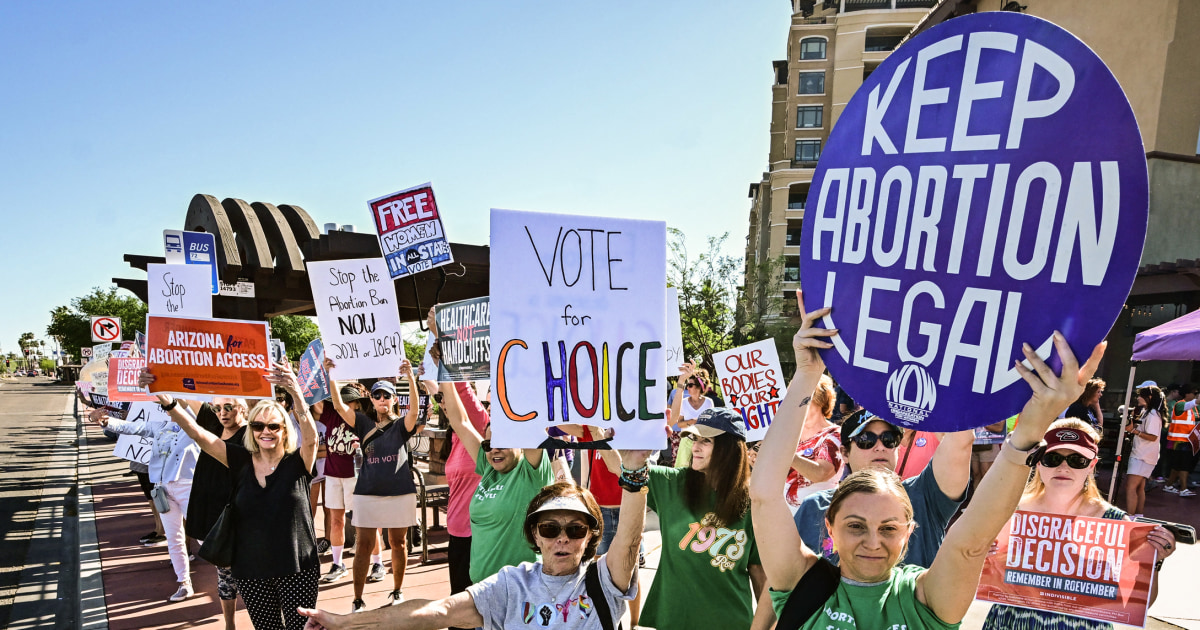Abortion rights will be on the ballot in Arizona this fall after the state supreme court unanimously rejected a challenge that sought to keep voters from deciding whether to enshrine a fundamental right to abortion in the battleground state.
Arizona’s top court emphasized that it wasn’t opining on the morality of abortion but rather whether the initiative could appear on the ballot. Arizona Right to Life argued that the description of the measure used to collect signatures to put it on the ballot was so misleading as to invalidate it.
The state court rejected that argument in an opinion on Tuesday. The court noted that the measure’s principal provisions are (1) establishing a fundamental right to abortion under the Arizona Constitution; (2) the scope of that right, before and after fetal viability; and (3) the preclusion of the state from penalizing a person for assisting another in exercising that right. The court said the description wasn’t objectively false or misleading and that it “explains each of these provisions and the tests that would apply to restrictions upon that right.”
The court said the description wasn’t required to explain the initiative’s impact on existing abortion laws or regulations. Noting that state law currently prohibits elective abortions after 15 weeks, the court said that “a reasonable person would necessarily understand that existing laws that fail the prescribed tests would be invalid rather than continue in effect.”
The anti-abortion challengers also argued that the initiative itself is misleading, but the court said that wasn’t the issue in this appeal and that the proper place to argue about that is in the political arena.
According to Arizona for Abortion Access, which backed the proposed Arizona Abortion Access Act, or Proposition 139, making abortion a fundamental right would mean that the state can’t limit abortion access before fetal viability without establishing that the limitation (1) is solely to protect the health of the patient, (2) doesn’t infringe on their autonomous decision-making, and (3) uses only the least restrictive means. It further says that the act protects abortion access after fetal viability if a treating healthcare provider determines an abortion is needed to protect the life or physical or mental health of the patient, using accepted clinical standards and evidence-based medicine.
The state ruling comes as the U.S. Supreme Court, which eliminated federal abortion rights in 2022, is considering an emergency appeal from Republicans to enforce an Arizona law requiring documentary proof of citizenship to vote. The justices could act on that appeal anytime.
Subscribe to the Deadline: Legal Newsletter for updates and expert analysis on the top legal stories. The newsletter will return to its regular weekly schedule when the Supreme Court’s next term kicks off in October.


Leave a Reply